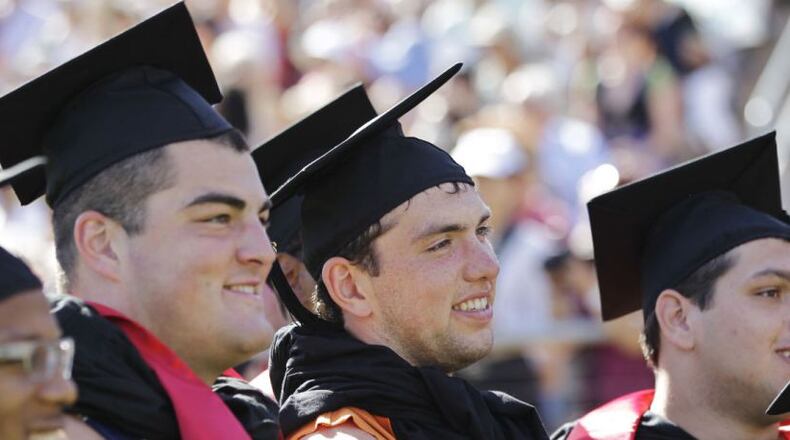Read more of the Rare Under-40 Poll results:
- Exclusive Rare Under-40 poll finds young people hold surprising views on Obama, marijuana, God and more
- Rare Under-40 Poll: Are young people turning away from God?
- Rare Under-40 Poll: What's worse — marijuana or alcohol?
- Rare Under-40 Poll: Porn is ruining our sex lives?
- Rare Under-40 Poll: Do young voters think religious people are more marginalized than before?
- Rare Under-40 Poll: Obama's support from young people is waning
- Rare Under-40 Poll: On impeachment, young voters are split by party
- Rare Under-40 Poll: All aboard for the Mars colony?
- Rare Under-40 Poll: Should government help young people with their student loan debt?
- Rare Under-40 Poll: Who trusts the police more?
- Rare Under-40 Poll: Young people are still pro-choice
---
About the poll
From August 11th till the 18th, Gravis Marketing, a nonpartisan research firm, conducted a random survey of 556 under 40 voters in the United States regarding current issues that impact the political and social landscape. The poll was conducted using Gravis Marketing Internet Panels (47%) and Gravis Automated Calls (53%) on behalf of online media outlet Rare.US. Overall, the poll has a margin of error of ± 5%. The general scope of the Gravis Marketing poll was to capture opinions of registered voters under the age of 40 on political, social, religious, and economic issues. The poll included a group of 54% female registered voters and 46% male voters across the United States. The majority of those polled (39%) stated they were 'independent' voters, while 32% claim to be members of the Democratic Party and 29% registered Republicans.
About Rare
Rare.us, a Cox Media Group property based in Washington, DC, was the fastest growing major media site in the United States in August with nearly 20 million visitors -- 40 times more than the same period a year ago. This unrivaled growth is the result of leveraging social media to discover and distribute the buzzworthy and uplifting content Americans will share with their networks.
Follow Rare on Twitter @rare and Facebook.
Young voters think government should take an active role in helping people pay down their student loan debt, according to a new poll conducted for Rare, a Cox Media Group website based in Washington, DC.
Forty-eight percent of respondents said they would support government assistance for those with college debt, while 38 percent were opposed. A further 14 percent were undecided.
The question was asked as part of a first-of-its-kind Rare poll that surveyed only respondents under 40. The questions were tailored to chart trends in the opinions of younger voters.
>>Read all of Rare's under-40 poll results
Particularly supportive were voters ages 18-29, 57 percent of whom wanted the government to get involved in student debt. Also in support were Democrats (69 percent), African Americans (69 percent), and, perhaps most unsurprisingly, those with graduate degrees (56 percent).
Republicans were less supportive, with only 31 percent in favor of government loan aid.
Lindsey Burke, an education expert from the conservative Heritage Foundation, expressed skepticism over the government getting more involved in the student loan industry.
“Having the federal government ‘pay down’ student loans or forgive balances isn’t free,” Burke said in an interview with Rare. “Taxpayers, many of whom don’t hold bachelor’s degrees themselves, would be on the tab for this federal largesse.”
Democrats generally support more relief for student loans. In a recent interview with Rolling Stone, Senator Elizabeth Warren said the government should do more.
“This country invests in tax loopholes for billionaires,” Warren said. “And forces college students to pay for them through higher interest rates on their loans. That makes no sense at all.”
Relieving student loan debt is an issue that's historically worked for President Obama, who touted such a package in both of his presidential campaigns. In 2009, Congress passed and Obama signed a sweeping overhaul that consolidated much of the student loan industry under federal control.
Heavy student loan debt has also been linked to troubles later in life. A recent Gallup survey found that those with more than $50,000 in college debt had lower standards of physical and financial well-being later in life.
Americans hold a total of about $1.2 trillion in student loan debt. The price index for college tuition skyrocketed 80 percent between 2003 and 2013.
The Rare survey was conducted by nonpartisan Gravis Marketing between August 11 and August 18. A total of 556 respondents under age 40 were interviewed over the phone and using Internet panels. Overall, the poll has a margin of error of 5 percent.
Matt Naham contributed to this report.
About the Author
The Latest
Featured


